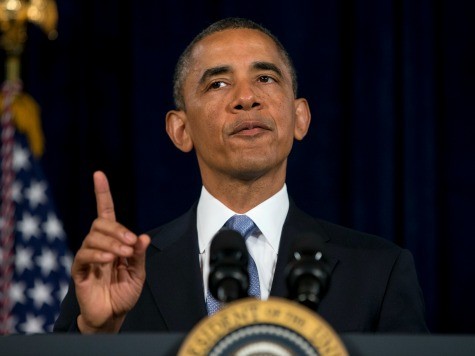In his speech on climate change Tuesday, President Obama seemed to make a turn on whether or not to allow the Keystone XL pipeline to be built.
President Obama has not previously declared himself on the issue of allowing Keystone XL, but today he said “allowing the keystone pipeline to be built requires a finding that doing so would be in our national interest.” The President added “the net effects of the pipelilne’s impact on our climate will be critical to determining whether this project goes forward.”
While this is far from a promise to reject the pipeline it does seem to to tee up the primary objection of organizations opposed to its construction, i.e. that the Canadian tar sands are a dirty energy which harm the environment.
A Sierra Club handout on the Keystone XL reads “The tar sands are the dirtiest and most carbon intensive form of oil on earth. Production of abarrel of oil from tar sands (including extraction and refining) is estimated to release at leastthree times the greenhouse gas emissions per barrel as producing a barrel of conventionalcrude oil. On a lifecycle basis, greenhouse gas (GHG) emissions of tar sands are 17% greater than the average barrel of crude currently “
So if the determination whether or not to approve the Keystone XL pipeline hinges on its impact on the climate, the President seems to be clearing a path for groups like Sierra to push the argument they are already making, i.e. that it would be bad for the environment.
The President’s statement does have one possible loophole. The real debate is whether or not blocking the Keystone XL pipeline will make a “net” difference. Pipeline proponents point out that the tar sands will be processed by Canada whether or not the oil produced flows south to the United States or out of Canada some other way.
The Sierra Club argues this is not the case, “Without the Keystone XL pipeline, the level of expansion sought by the tar sands industry would not occur. The Canadian tar sands are currently landlocked in Alberta and all other possible routes to export the crude are facing resistance.”
So who will the State Department ultimately believe. Will they believe the Prime Minister of Canada who says the production will be going forward one way or another or will they believe the Sierra Club who is suing the administration and promising “resistance.”
It’s worth noting that the Sierra Club’s opposition is not merely to the fractional difference in extra carbon Keystone XL may represent. Sierra wants to see an end to all “dirty” energy production, including natural gas. In other words, if it really mattered to Sierra that tar sands are 17% dirtier it ought to matter that natural gas is more than 17% “cleaner” (than oil). It does not. Sierra has an all-of-the-above solution to carbon based energy: Stop it all.
The President has not committed himself to siding with the Sierra Club and their allies on Keystone XL, but his speech does seem to take a step in that direction. If reducing the CO2 concentration in the atmosphere means more than producing energy or creating jobs, then the outcome is fairly predictable.

COMMENTS
Please let us know if you're having issues with commenting.